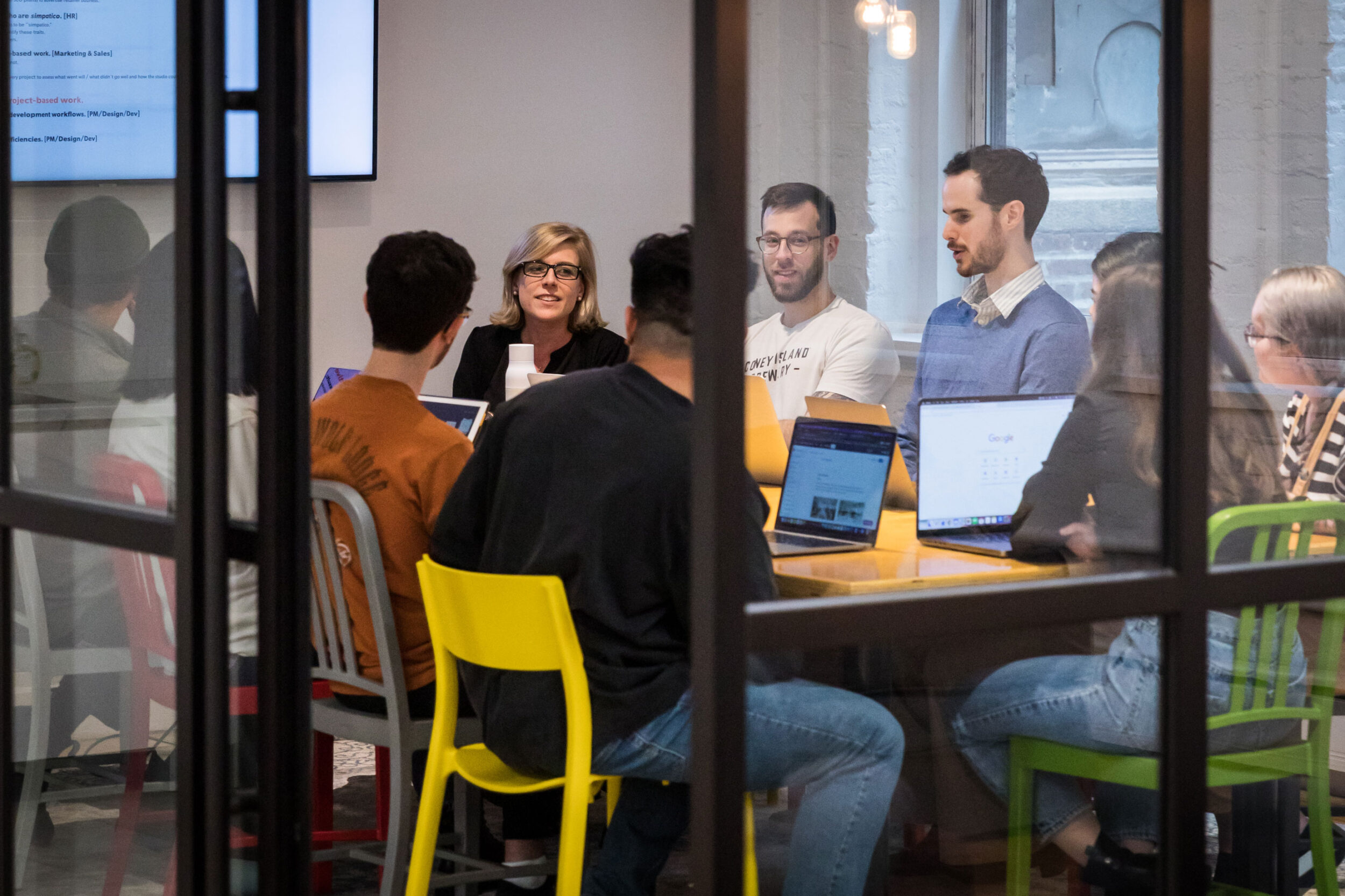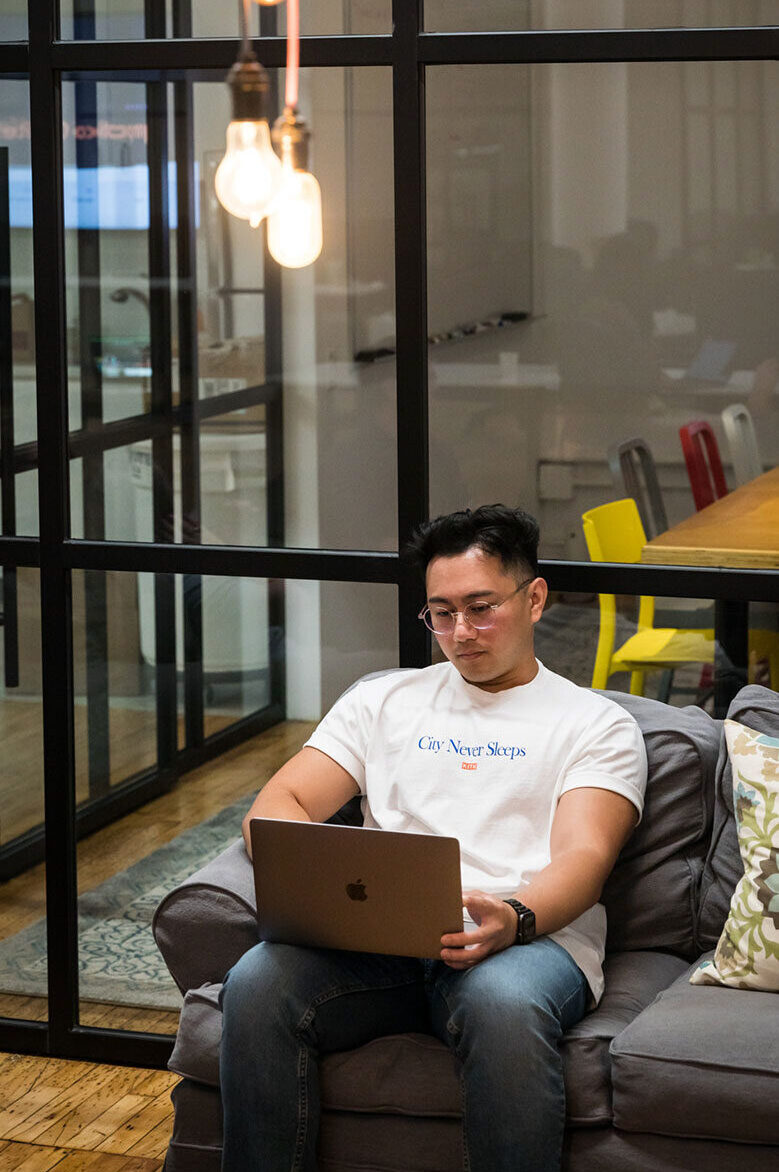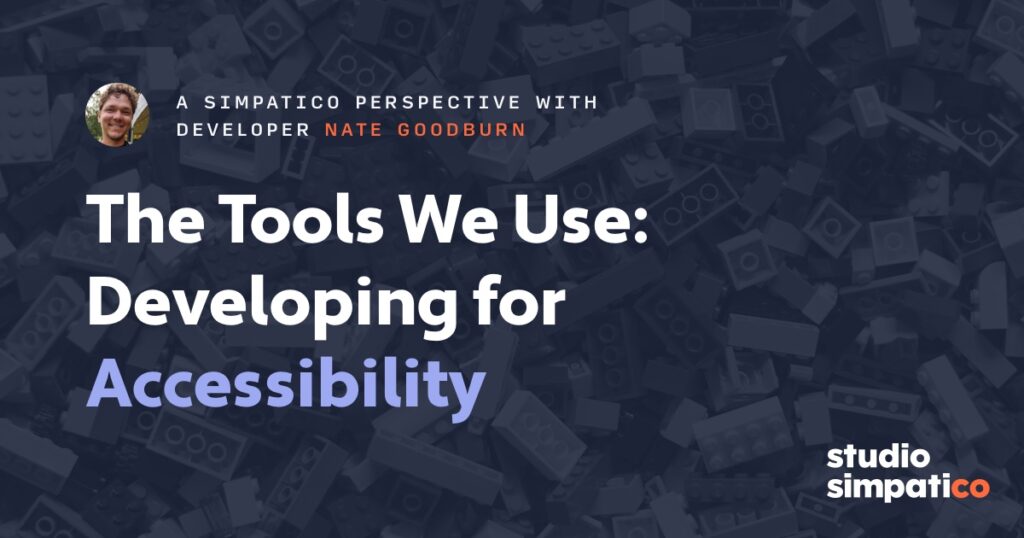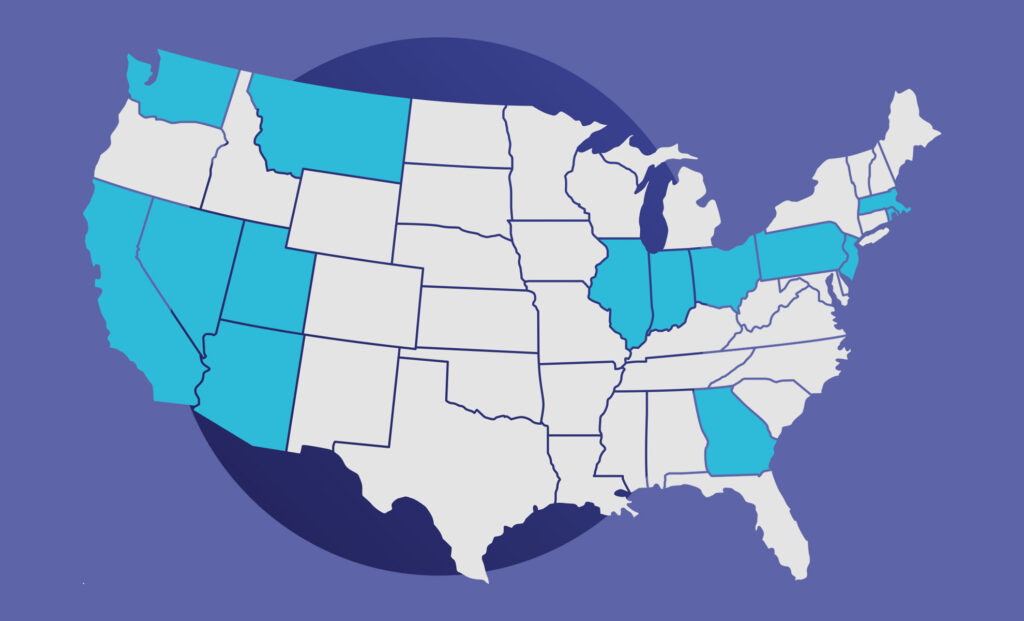WordPress has been the most popular content management system (CMS) for decades, and for good reason. As of 2021, there are 455 million websites made with WordPress. WordPress allows you the structure of a CMS without compromising customizability of beautiful web design. At Studio Simpatico, we build custom WordPress themes for all of our clients’ websites to afford ourselves the flexibility to adapt to each client’s unique CMS needs.
If you’re wanting to delve into the world of WordPress, good news! Becoming a pro WordPress custom theme developer is easy to learn with the right foundational development knowledge. We spoke with Amber, our Head of Development, to get her perspective on how she became a WordPress developer, what skills the job requires, and tips for how to become a WordPress developer.
 Amber, Corey, and Nate in a discussion about development.
Amber, Corey, and Nate in a discussion about development.How did you get started with WordPress development?

When I first started freelancing back in 2009, I took every project that came my way which meant that I got firsthand experience with a lot of different content management systems and frameworks. While this was a difficult learning experience (as every single system has a vastly different way of doing things), it also gave me a good overview of what was most popular and easy to work with.
WordPress outstripped the other CMSs by far. It was easy to learn and the file system was a single theme folder that you could organize to your own preference (unlike say Drupal, Joomla, or a lot of the eCommerce platforms out there). The documentation and dev culture around WP was also such a fantastic help, and way more robust than any of the other frameworks out there. WordPress was also the service most frequently requested [by clients], so I just kind of organically drifted in that direction. Once I had enough work to sustain my business, I stopped taking on any project that wasn’t WordPress-based.
Why are custom themes the way to go (for Simpatico)?

There are vastly different reasons to go custom versus a pre-made theme in WordPress. If you’re low on funds and need something [put] up quick, a pre-made theme is always a great place to start. However, you’re very limited on customizing and adding on new features, and even installing and using a pre-made theme isn’t always the easiest or most intuitive.
Simpatico only does custom themes because it allows us to make the website for our clients. While our themes are started on top of our custom-made developer theme and follow some basic conventions we’ve set up, every theme is unique to the client, and not just the design itself. We can fully customize the CMS and admin area to do just about anything our clients need.
Going custom allows us to do this without a lot of technical debt or junk code, which often happens when trying to force someone else’s design, theme, and/or code into your own creation. This means the website already has a better chance of being accessible, SEO optimized, and semantic. It also means we have more time spent on creating the website our client needs, instead of trying to hack or delete old code from something that wasn’t meant to look or behave that way.
 Studio Simpatico team meets in conference room.
Studio Simpatico team meets in conference room.I want to become a WordPress developer. How do I get started learning? What is the Simpatico bootcamp experience like?

Before you hop into any CMS, it’s good to get familiar with the basics of coding first. Learning proper semantic HTML and CSS is key to creating a good website. Once you have a good foundation of those two languages, you can easily pick up the PHP and JS you’ll need to create a full theme.
There are so many fantastic free and paid learning programs available. You could go to a local bootcamp school, but that isn’t necessary, and a lot of them don’t focus properly on the basics. Our developers have used websites like https://www.freecodecamp.org and https://www.codecademy.com/ to teach themselves to code. A great way to learn is just to jump in and make your own website. Start with something basic, and then keep adding and making it more complex as you go.
The Simpatico bootcamp works in a similar way. We start you off by walking you through the basic CMS and creating your own little “portfolio” where we start teaching you some of the basic functions that come with WordPress. We also get you very comfortable with looking things up on WordPress.org or on StackOverflow. Once you realize that almost everything has already been coded somewhere and all you need to learn is how to google for it, things become a bit easier!
Once you’ve worked on that for a bit, we start ramping things up by giving you some of the easier coding tasks, such as some QA items or small changes. It’s our goal to make it challenging enough that you’re interested and still learning, without it being too challenging that you get frustrated! After that, you should naturally start picking up more and more work as you become comfortable.


What tools/skills do you need to know to become a WordPress developer?

I try to tell all my code noobs to not even look at a CMS or framework until you are at least comfortable with the basics of HTML and CSS. Having something that large and complicated is like trying to eat an entire elephant in one meal!
Having a good knowledge of semantic markup – including how heading levels work, the differences between <div>, <section>, <article> and so on is essential. Learning how CSS works, especially grid, flexbox, and responsive design, is the second most important thing to learn. Without these things, you’re building a house without a foundation that will fall over in the very first storm!
While the web often works even if you don’t follow “proper” conventions, it’s often detrimental in invisible ways – either your SEO score suffors, users with accessibility devices can’t use your website and business is lost, or the site ends up failing completely in unexpected ways. Debugging is a large part of the job and it’s hard to do so if your code is a rat’s nest of mismatched tags or improper code.
Why is working in development/WordPress development rewarding for you?

I think it’s the fact that nothing stays the same. There are always new things to learn, new features coming out, and new complicated functionality to figure out. We’re constantly innovating the way we structure the admin to make it easier for our clients to use and update themselves. We’re building more and more complicated features that still remain easy to use. The design team creates such gorgeous work, it makes it a lot more fun to code and bring to life.
 The development team meets to discuss current projects.
The development team meets to discuss current projects.Being a pro WordPress custom theme developer takes many years to achieve, but if you are just starting out, you can set yourself up for success by learning foundational development principles, such as semantic HTML and CSS.
If you’re interested in becoming a pro WordPress custom theme developer, but are just starting out in the WordPress/development world, we encourage you to consider joining the Simpatico team. Our development team can teach you the tools to learn and grow as a WordPress developer, and you’ll get real experience working with clients and other designers and developers on our team. Check out our open Entry Level Developer position here and our other openings here.







